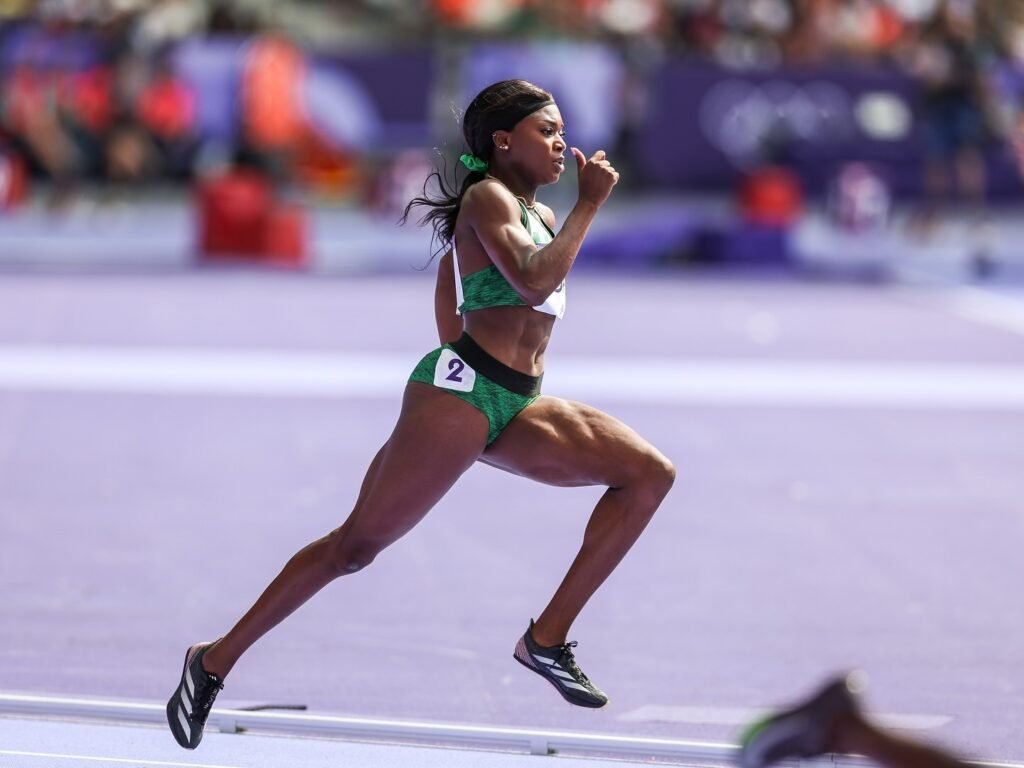
On May 17, 2025, on a sunlit afternoon in Atlanta, history was not just made – it was rewritten.
Favour Ofili, the 22-year-old Nigerian sprint sensation, blazed down the straightaway at the Adidas City Games, crossing the finish line in an astonishing 15.85 seconds. In that electrifying moment, she set a new world record in the women’s 150m straight race. It wasn’t just a personal victory, it was a seismic statement to the world: Africa’s daughters are not waiting for permission to be great.
But to truly grasp the weight of that moment, you have to understand where she’s coming from.

Born on December 31, 2002, in Port Harcourt and raised in the richly cultural Delta State, Nigeria, Favour Ofili’s talent bloomed early. With speed in her bones and fire in her spirit, she seized gold in both the 200m and 400m at the 2019 African Youth Championships, and later that year, earned a silver medal at the African Games, all before turning 17. She was already defying expectations and rewriting the script of what was possible for young African athletes.

Her journey took her to Louisiana State University (LSU) in the United States, where she wasn’t just an athlete, she was a trailblazer. There, she became a 13-time All-American, a six-time SEC Champion, and the first NCAA female athlete to run sub-11 seconds in the 100m and sub-22 seconds in the 200m. Her name became synonymous with dominance, resilience, and excellence. She graduated with a degree in Sport and Fitness Administration, all while leaving a lasting mark on collegiate track history.
Yet, greatness is often born through fire.
In 2024, despite earning her place to represent Nigeria on the Olympic stage, Favour was cruelly sidelined from the women’s 100m event due to administrative negligence. It was a painful moment – not just for her, but for a country watching one of its brightest stars denied the spotlight she earned. But Favour didn’t crumble. She did what champions do, she took that heartbreak and turned it into hunger.
So when she lined up at the Adidas City Games in 2025, she wasn’t just running a race, she was running a reclamation. A reclamation of opportunity. Of voice. Of narrative.
And when she crossed that finish line, not just ahead of her competitors but ahead of history, the world witnessed something powerful: redemption wrapped in speed.

Favour Ofili’s story is not just about medals or records, it’s about vision, discipline, and a relentless refusal to be defined by circumstances. She represents the strength of African women, the brilliance of youth, and the resilience of anyone who’s ever been told “no” and still chose to run toward “yes.”
She runs for herself. She runs for Nigeria. She runs for every girl who has ever dared to dream beyond the boundaries set for her.
And now, the world isn’t just watching. The world is running to keep up.


